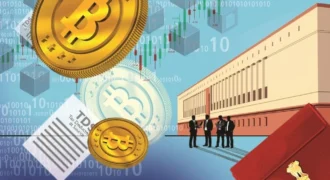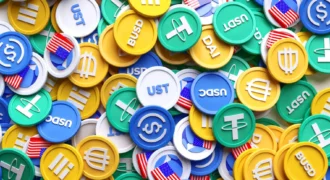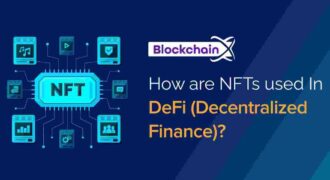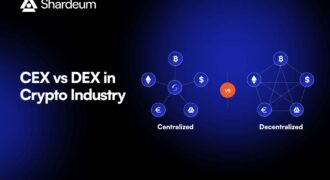Decentralized Finance (DeFi) has transformed the cryptocurrency landscape by removing intermediaries and enabling peer-to-peer financial interactions. At the heart of this revolution lies a fundamental technological innovation: smart contracts. These self-executing programs, coded onto blockchain networks, allow transactions and agreements to occur automatically, transparently, and securely—without relying on banks, brokers, or other centralized authorities.
Understanding smart contracts is essential for anyone looking to navigate DeFi effectively, as they power lending, borrowing, trading, staking, and a growing range of innovative financial products.
What Are Smart Contracts?
A smart contract is essentially a digital agreement written in code that executes automatically when predefined conditions are met. Once deployed on a blockchain, the contract runs without human intervention, guaranteeing execution exactly as programmed.
Key characteristics include:
- Autonomy: No intermediary is required; the contract self-executes.
- Transparency: Code and transactions are publicly auditable on-chain.
- Immutability: Once deployed, the contract cannot be altered without consensus.
- Security: Cryptography ensures that terms are tamper-proof and verifiable.
Smart contracts are most commonly associated with the Ethereum blockchain, though other platforms like Binance Smart Chain, Solana, and Avalanche also support them.
How Smart Contracts Power DeFi
Smart contracts are the engine behind decentralized finance, enabling a wide range of financial services without traditional intermediaries:
- Lending and Borrowing
Platforms like Aave and Compound rely on smart contracts to manage lending pools. Users can deposit crypto assets, which are automatically loaned out to borrowers. Interest rates, collateral requirements, and liquidation processes are all enforced by smart contracts, ensuring trustless, automated operation. - Decentralized Exchanges (DEXs)
DEXs such as Uniswap and SushiSwap use automated market maker (AMM) smart contracts to facilitate trades. Liquidity providers deposit assets into pools, and the smart contract automatically executes swaps, calculates prices, and distributes fees. This eliminates the need for order books and centralized intermediaries. - Yield Farming and Staking
Smart contracts manage staking pools, liquidity mining, and reward distribution, allowing users to earn passive income. Protocols automatically calculate rewards based on participation, ensuring fairness and transparency. - Insurance and Risk Management
DeFi insurance platforms, like Nexus Mutual, use smart contracts to automate coverage payouts when specific conditions are met. This reduces reliance on human claims processing and speeds up resolution. - Governance
Many DeFi protocols employ smart contracts to facilitate decentralized governance, enabling token holders to vote on proposals, protocol upgrades, and treasury allocation. Votes are automatically counted, and approved changes are executed on-chain.
Advantages of Smart Contracts in DeFi
- Efficiency: Automation eliminates the need for intermediaries, reducing transaction times and operational costs.
- Transparency: Every transaction and rule is visible on-chain, providing verifiable accountability.
- Security: Smart contracts reduce human error and ensure enforcement of agreed terms.
- Global Accessibility: Anyone with a compatible wallet can participate, regardless of location.
- Programmable Finance: Complex financial logic can be encoded into contracts, enabling innovative products like NFT collateralized loans or synthetic assets.
By combining these features, smart contracts enable financial inclusivity and innovation at a scale that traditional systems struggle to match.
Risks and Challenges
Despite their advantages, smart contracts are not without risks:
- Code Vulnerabilities: Bugs or exploits in contract code can lead to significant losses. High-profile hacks like the DAO hack in 2016 and the Poly Network exploit in 2021 highlight the importance of auditing and security.
- Immutable Mistakes: Once deployed, flawed contracts are difficult to correct, requiring complex workarounds.
- Market Risk: Smart contracts cannot protect against volatile markets or drastic price fluctuations in crypto collateral.
- Regulatory Ambiguity: The legal status of smart contracts is evolving, and their decentralized nature complicates enforcement or dispute resolution.
- User Responsibility: Participants must secure their wallets and private keys, as smart contracts cannot recover lost or stolen funds.
Mitigating these risks requires audited contracts, careful design, and user education, emphasizing the importance of security in DeFi development.
Case Studies: Smart Contracts in Action
- Aave – Enables users to lend and borrow crypto with automated interest rate adjustments, collateral management, and liquidations executed entirely by smart contracts.
- Uniswap – Its AMM smart contracts allow users to swap tokens instantly while maintaining liquidity and distributing fees to liquidity providers automatically.
- MakerDAO – Users deposit collateral into smart contracts to mint the stablecoin DAI, with automated liquidation mechanisms maintaining system stability.
- Synthetix – Uses smart contracts to create and manage synthetic assets that track the value of real-world or crypto assets, allowing decentralized exposure to diverse markets.
These examples demonstrate the breadth and versatility of smart contract applications in DeFi.
The Future of Smart Contracts in DeFi
Smart contracts continue to evolve, driving more complex and integrated financial systems:
- Cross-Chain Contracts: Interoperable smart contracts allow assets and protocols to interact across multiple blockchains, expanding DeFi’s reach.
- Composable DeFi (Money Legos): Developers can combine multiple contracts to create complex financial strategies, such as leveraging NFT collateral for yield farming or creating synthetic derivatives.
- Integration with AI: Smart contracts can interact with AI oracles to automate decisions based on external data, such as market conditions or real-world events.
- Regulatory Compliance Automation: Future contracts may incorporate compliance rules while maintaining decentralization, bridging the gap between innovation and oversight.
By enhancing automation, interoperability, and programmability, smart contracts are poised to reshape global finance, creating opportunities for more efficient, inclusive, and innovative financial systems.
Conclusion
Smart contracts are the backbone of DeFi, transforming financial services by automating trust, execution, and governance. They eliminate intermediaries, increase transparency, and enable complex financial products that were previously impossible or highly inefficient in traditional finance.
From lending and borrowing to decentralized exchanges, staking, governance, and NFT integration, smart contracts empower users to control, trade, and earn with unprecedented autonomy. At the same time, they demand vigilance, security awareness, and informed participation due to the inherent risks of code and volatility.
As DeFi continues to expand, smart contracts will remain central to the innovation of digital finance, enabling a new era where financial transactions are automated, transparent, and accessible to anyone with an internet connection.
Understanding smart contracts is no longer optional for crypto enthusiasts—it is essential for navigating the future of decentralized finance and harnessing its full potential.



